Shrine casts dark shadow
Updated: 2013-08-16 08:51
(China Daily)
|
||||||||
Japanese Prime Minister Shinzo Abe made a clear statement by having his ritual gift, with his name and the title of his Liberal Democratic Party, sent to the controversial Yasukuni Shrine on Thursday.
He did not visit the shrine, because it would have been a slap in the face to Japan's neighbors and the United States, but he did not stop members of his Cabinet from going to the shrine. Even though, as he and they well know, their visits to the shrine were not a matter of personal choice, as the shrine commemorates 14 Class A war criminals among Japan's war dead.
Thursday marked the anniversary of Japan's surrender in World War II, and not only did Abe avoid the promise usually given by his predecessors to uphold Japan's pledge not to engage in war, he also broke with two decades of tradition by not expressing any remorse over Japan's aggression against its neighbors.
The Abe administration is deliberately trying to sweep that part of the country's past under the carpet. The neo-nationalist officials claim that the world is prejudiced against Japan, but that is because it refuses to acknowledge and apologize for the suffering it caused with its imperialist ambitions.
From the Nanjing Massacre in the opening months of the war against China to the Rape of Manila in the final stage of the Pacific War, imperial Japan's soldiers left a trail of unspeakable cruelty and rapacity across Asia.
Abe and his supporters try to pretend these atrocities never happened, but history will not be denied by their attempts to obfuscate the past.
To escape a crisis of national identity, some Japanese politicians have tried to rewrite history, claiming that people who do not have a history to be proud of cannot constitute a nation. But how can people take pride in a nation that refuses to take an honest look at itself?
Japanese conservative elites have proven steadfastly disinclined to seriously open either their minds or the archives when it comes to the war. They remain wedded to the narrowest technical notions of reparations and redress, and still proudly commemorate the country's Class A war criminals.
But in doing so they are incurring the odium of Japan's neighbors.
Instead of trying to find glory in denial, they should give the country back some pride by issuing sincere statements of responsibility, repentance and apology.
- War shrine is an open invitation to Japan's extremists
- China, S Korea condemn Japan over war shrine visit
- Should Japanese politicians visit Yasukuni shrine?
- China summons Japanese ambassador over shrine visit
- Japan's Abe sends offering to war shrine
- Two Japanese ministers visit Yasukuni shrine
- Abe rules out visit to Yasukuni shrine
- Remarks on Yasukuni Shrine irk Tokyo's neighbors
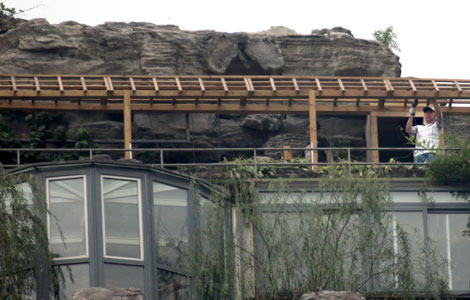
 Demolition work starts on rooftop villa structure
Demolition work starts on rooftop villa structure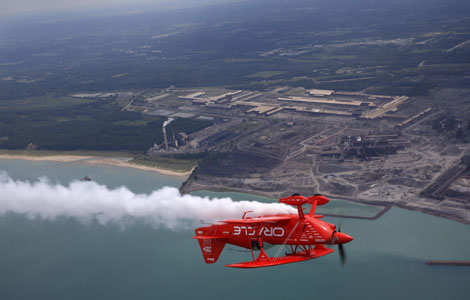
 Thrills in store for Chicago Air and Water Show
Thrills in store for Chicago Air and Water Show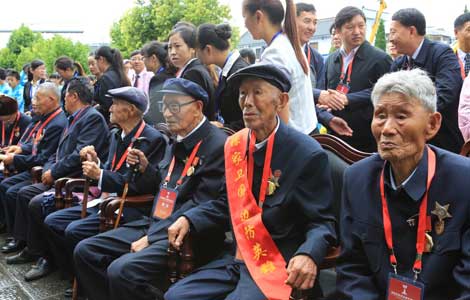
 Memorial to expeditionary soldiers opens
Memorial to expeditionary soldiers opens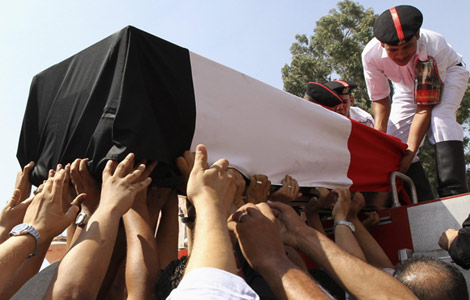
 Death toll from Egypt violence rises to 638
Death toll from Egypt violence rises to 638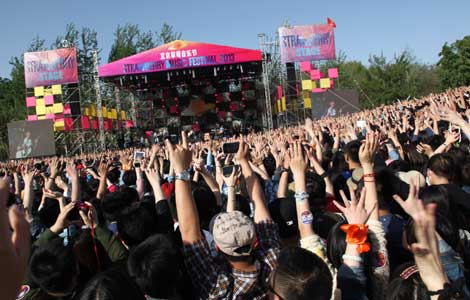
 Tunes that travel
Tunes that travel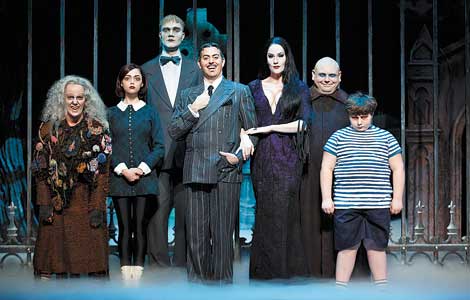
 Macabre Addams Family tests musical tastes
Macabre Addams Family tests musical tastes
 Spielberg has desire to work with Zhang Yimou
Spielberg has desire to work with Zhang Yimou
 Li Na advances to 3rd round at Cincinnati Open
Li Na advances to 3rd round at Cincinnati Open
Most Viewed
Editor's Picks

|

|

|

|
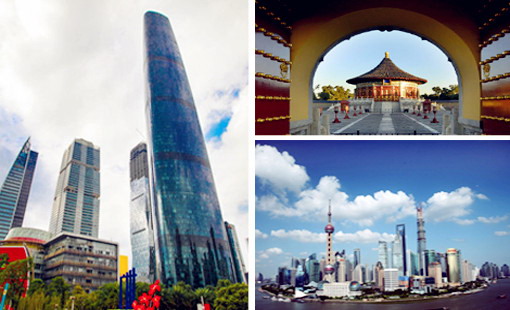
|

|
Today's Top News
No remorse as Abe marks surrender anniversary
China to be world's No 1 consumer
China Mobile looks to data services
Beijing, Moscow hail military ties
Japan exports to China at lowest in four years
Fish ecosystem 'on verge of collapse'
First public rental housing fund launched
Trimming standard ideas of butchering
US Weekly

|

|







